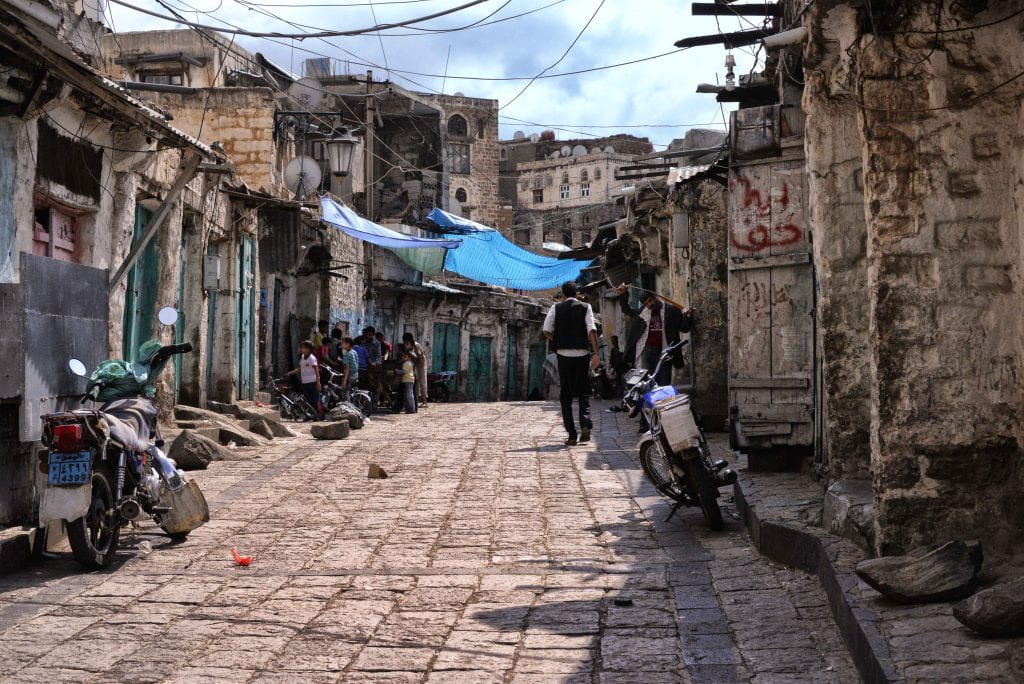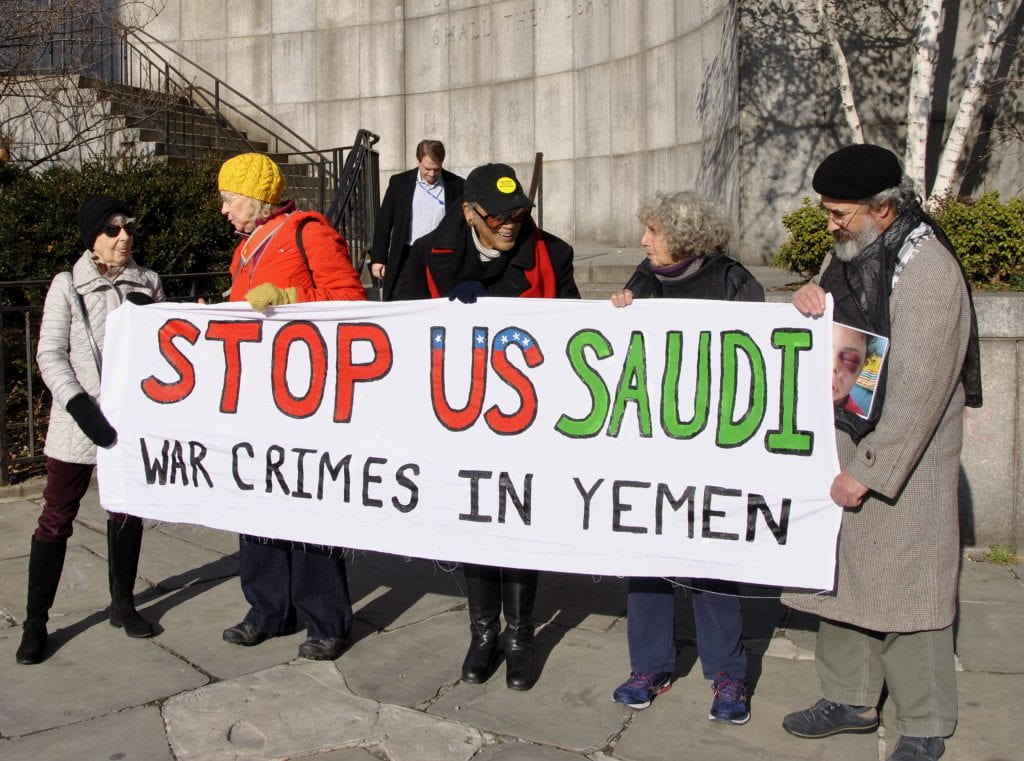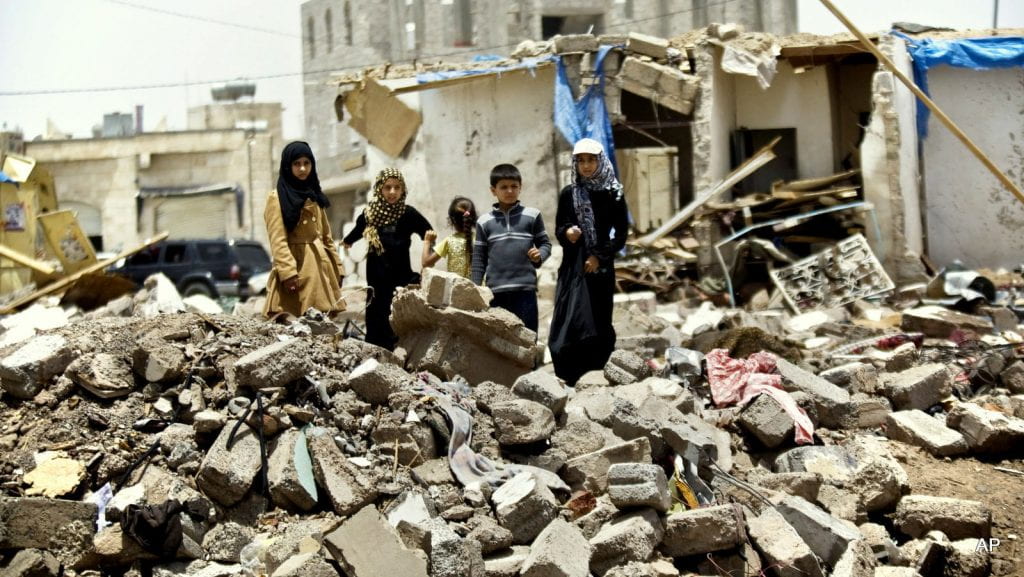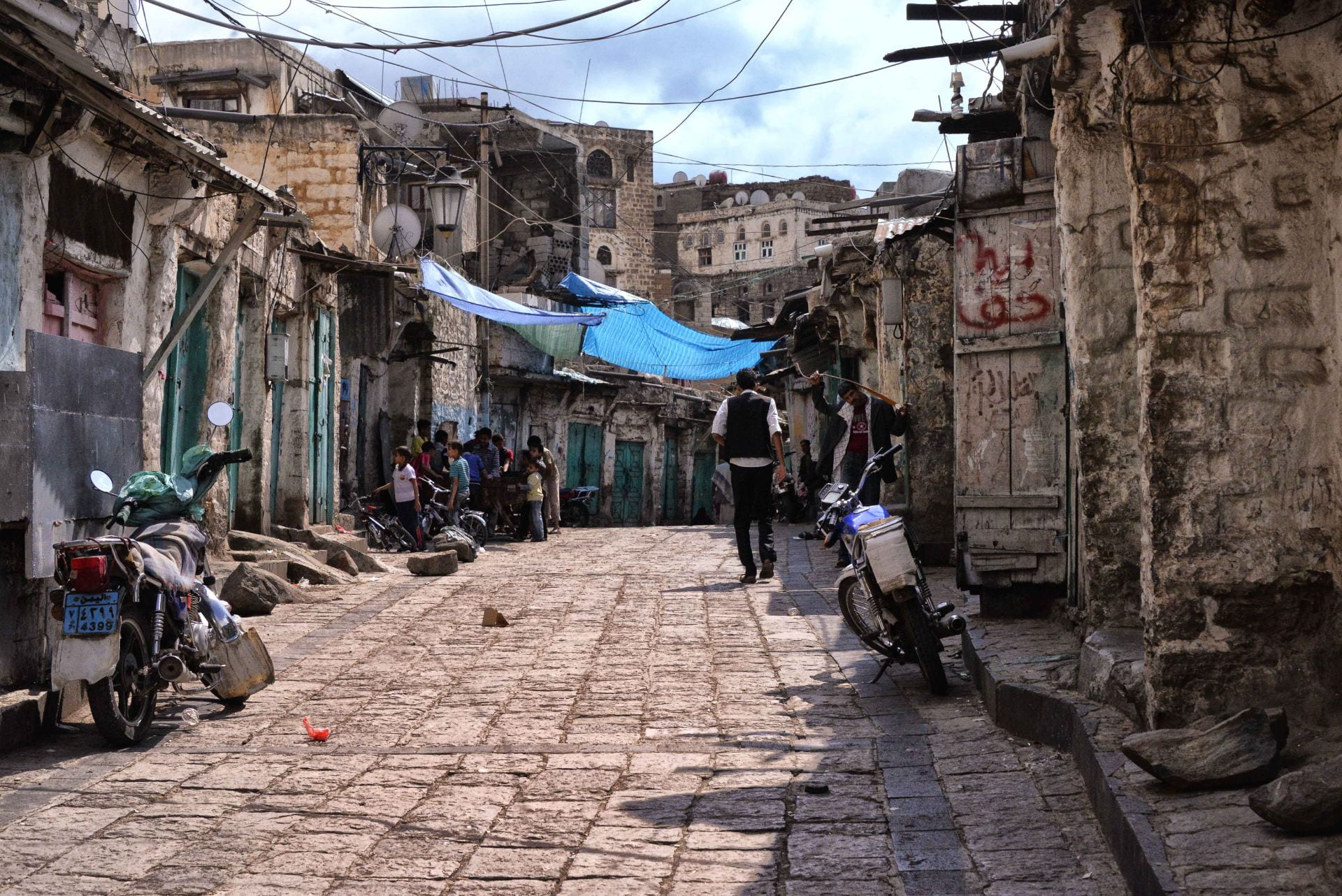
Fatima Abo Alasrar, a nonresident scholar at the Middle East Institute and former senior analyst at the Arabia Foundation, joined us on Thursday, Sept. 26, 2019 to shed some light on the crisis in Yemen and advocate a new social contract regarding Yemen as the war has evolved from a local insurrection into an international effort that has exposed greater vulnerabilities of the country, weakened the central government, and emboldened foreign threats to Yemen.
Before the country appointed a president, the Zaydis, an Islamic sect, were dominant in Yemen where they resided for thousands of years. Its Imams controlled the north of Yemen, as the theocratic Yemen Arab Republic, as the south slowly turned into the People’s Democratic Republic of Yemen. When the president in the north, Ali Abdullah Saleh and his regime proposed to unite the north and south under one government, unification was not based on democratic principles, but on state, rhetoric-accentuated polarization and identity politics. For northerners, the war ended succession, but the southerners grieved as they became second-class citizens who were exploited under occupation. Meanwhile, the Houthi Movement organized Zaydi-Shia fighters against underdevelopment and political marginalization as they protested the dilution of Zaydi influence and identity. Inequality built resentment among civilians and some of the dissatisfied joined extremist groups or protest as people lost faith in the state. As more states and non-state actors got involved and introduced differing political and ideological orientations and promoted their interests, efforts deepened sectarian divides.
Saudi Arabia continued to assist the government against the Houthi rebels, especially motivated by their Shiite rival, Iran who supported the Houthi insurgency; however, Ms. AlAsrar revealed Saudi shortcomings in the military’s lack of warfare experience, increase in spending, and media coverage criticizing domestic failures. She explained that Saudi Arabia has only aggravated this already dire humanitarian crisis and now faces ramifications. She urged, instead of encouraging Saudi intervention, international attention should shift focus.
AlAsrar stressed Iranian intervention and influence in Houthi insurgency -evident as the group’s propaganda and style mirrors the others’- where Houthis considered themselves proud members of the Iran-led Axis of Resistance alliance (resisting the West and Israel). The Houthis act as Iran’s proxy to advance their goals in Yemen just as the Iranians act as Houthis’ proxy to get power in their own political agenda and this relationship has only festered.

The US is complicit in war crimes as it supports Saudi Arabia, a major ally, who is threatened by Western antagonizers including Iran and Houthi rebels in the counter-terrorism narrative. This alliance has clouded Americans’ knowledge of Yemeni objectives and continues to kill, repress, and threaten civilians. Now all players may use the counter-terrorism narrative to attract the international community, which is not as informed and interested in the domestic conflict consuming Yemen.
Radicalized and terrorist groups concentrate and compete for the spotlight and the conflict has amplified as it is linked to the war on terror for international attention. Al-Qaeda is such a group who has acted as a gang for hire in the Yemen conflict. The intervention of regional powers also threatens to draw Yemen further into the broader Sunni-Shia divide. Iran exploited the conflict to increase its influence in the region becoming the most beneficiary actor for its relatively low cost. Whereas, U.S. backed Saudi Arabia suffers reputational damage which is creating more friction.
All sides of the conflict have been accused of violations of international humanitarian law and organization which are pushing Yemeni civilians out. AlAsrar questions whether the UN can hold the Houthis accountable for their end of the bargain. The UN’s plan for Yemen has been shaped in Houthi favor, “confident in their power of destruction,” accepting Houthi demands and encouraging their extraction of concessions so the deal does not collapse. The desire to keep the Houthi involved in the peace process has only legitimized a violent non-state actor.

The speaker’s concern was in the international community’s engagement regarding the conflict in Yemen, misguided, misinformed, and disconnected narrative on which international actors base their policies. Political engagement continues to be overshadowed by limited propaganda and media coverage of the war.
AlAsrar elaborated with frustration concerning the overwhelming use of the humanitarian narrative to explain the conflict in Yemen. A lot of humanitarian work is fast-paced and reaches for an emotional narrative. There is a lack of comprehensive policy instruments when the audience sees humanitarian assistance as the primary tool. International humanitarian organization has hijacked the voices of the local civil society to provide immediate relief which cannot speak for the broader political factors that have created and perpetuated the crisis.
Other regional governments have interceded to pursue and protect their own interests, but the root of the Yemeni conflict was a domestic one. These foreign powers may encourage their partners to engage in a political process for peace but have instead overshadowed the conflict in Yemen which was driven by concerns in sectarian marginalization, economic underdevelopment, and displeasure at governmental political distraction in cooperation with foreign powers, the United States and Saudi Arabia. In response, AlAsrar’s narrative encourages broader education and analysis on the different motivations, perspectives, and grievances of each actor to establish a more comprehensive and consistent strategy and policy to deal with the exasperated and dire Yemen Conflict.

